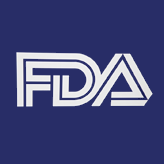FDA Approved Ibrutinib for Relapsed, Refractory Marginal Zone Lymphoma
The FDA recently approved the oral BTK inhibitor ibrutinib for the treatment of patients with relapsed or refractory marginal zone lymphoma who require systemic therapy and have had at least one prior anti-CD20 therapy.
Ibrutinib produced an overall response rate of 46%

The US Food and Drug Administration (FDA) recently approved the oral Bruton tyrosine kinase (BTK) inhibitor ibrutinib for the treatment of patients with relapsed or refractory marginal zone lymphoma who require systemic therapy and have had at least one prior anti-CD20 therapy.
The drug was approved based on findings from a single phase II study presented at the 2016 American Society of Hematology (ASH) Annual Meeting. The trial included 63 patients with histologically confirmed marginal zone lymphoma who had received one or more prior therapy including at least one CD20 monoclonal antibody. Included patients had three subtypes of disease, mucosa-associated lymphoid tissue, nodal, and splenic. All patients received ibrutinib 560 mg once daily.
Using an independent committee review, the overall response rate was 46%. The median time to response was 4.5 months. Of those patients on the trial, 3.2% had a complete response and 42.9% had a partial response. The median duration of response was not yet reached.
The most common adverse events of any grade on the trial were diarrhea, anemia, nausea, thrombocytopenia, peripheral edema, cough, arthralgia, dyspnea, and upper respiratory tract infection. The most common grade 3/4 adverse events were decreases in hemoglobin (13%), neutrophil decrease (13%), and pneumonia (10%).
Ibrutinib is also approved to treat chronic lymphocytic leukemia/small lymphocytic lymphoma, including patients with 17p deletion, mantle cell lymphoma after at least one prior therapy, and patients with Waldenstrom macroglobulinemia.
Navigating AE Management for Cellular Therapy Across Hematologic Cancers
A panel of clinical pharmacists discussed strategies for mitigating toxicities across different multiple myeloma, lymphoma, and leukemia populations.